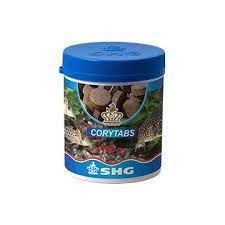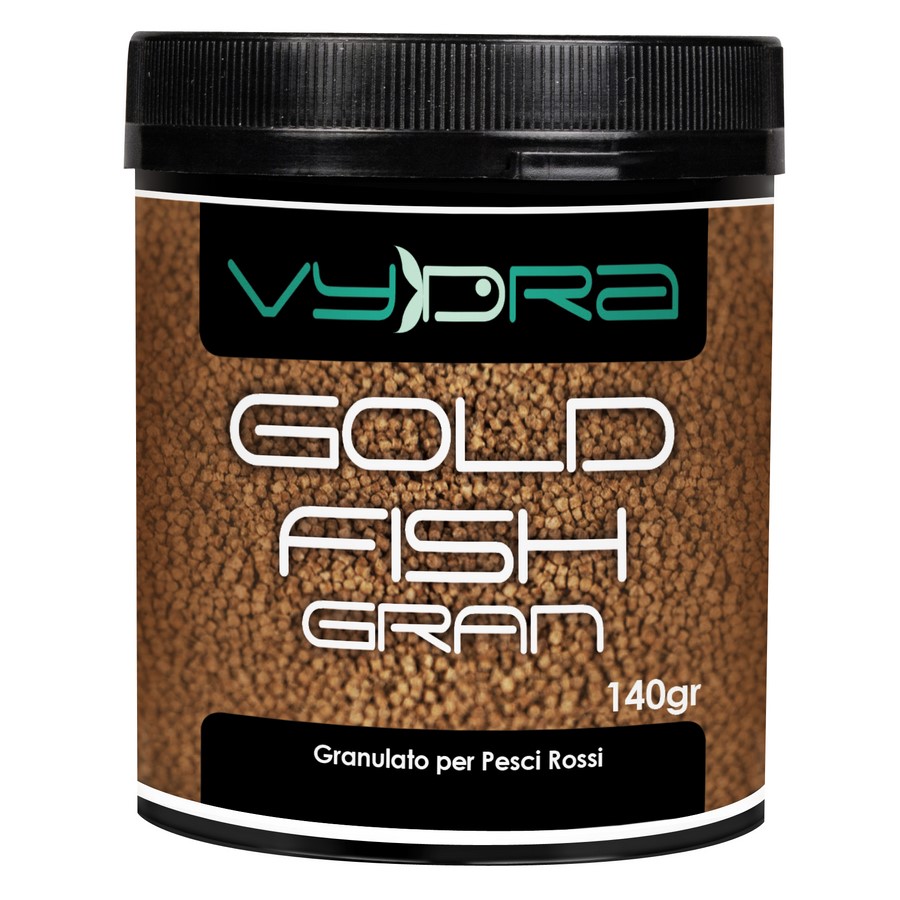PRONOVO BITS GRANO M
250ML
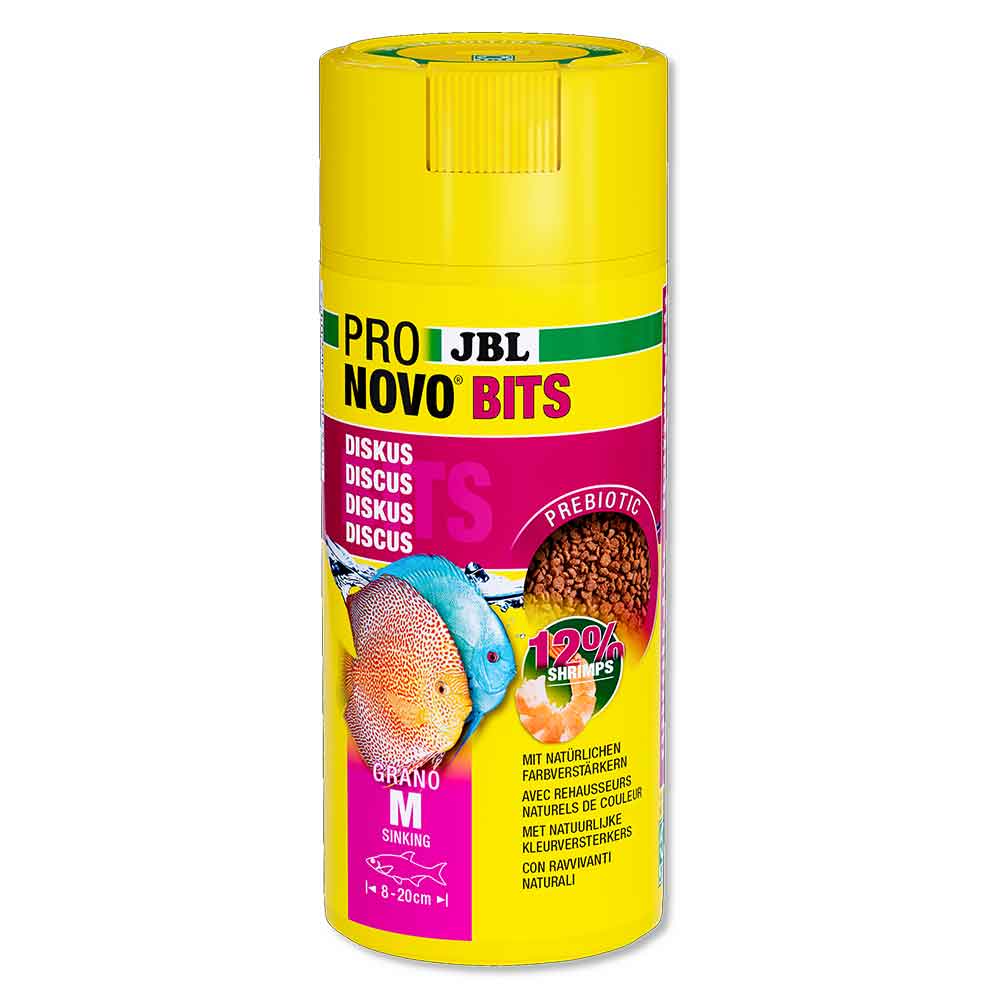
Mangime di base per acquari in granuli per pesci disco e altri ciclidi esigenti dell'America del Sud di 8-20 cm
Discus fish and some other cichlid species can be very picky about their food. In JBL PRONOVO BITS this was taken into account and raw materials such as shrimp that these fish cannot resist were chosen.
Since discus and cichlids living in the same biotope adapt their food spectrum to the dry and rainy seasons, and since we do not simulate this in the aquarium, the food must be very varied. During the rainy season of the Amazon, when the water level rises up to 9 m, discus even eat fruit and other plant components! During the dry season the discus sit on the bottom and eat, in addition to shrimp, everything edible they can find.
Advantages of JBL feed
Use of pure fish proteins without poor fish meal.
Ideal protein-fat ratio.
Proteins come mainly from aquatic animals.
Correct phosphate content reduces algae growth and promotes fish growth.
Prebiotic: Prebiotics are “substrates that host microorganisms selectively utilize to benefit health.” Scientists agree on their usefulness for digestion and consequently for health. In the case of our fish, another essential aspect is added: with better digestion there is less excrement, less polluted water, fewer problems with algae. The water stays cleaner.
Don't be surprised if coleoidea are also listed among the ingredients! Coleoidea represent all molluscs in the feed declaration, including shells and snails. Of course, coleoidea are not part of the natural food spectrum of the discus



 English
English  Italiano
Italiano 
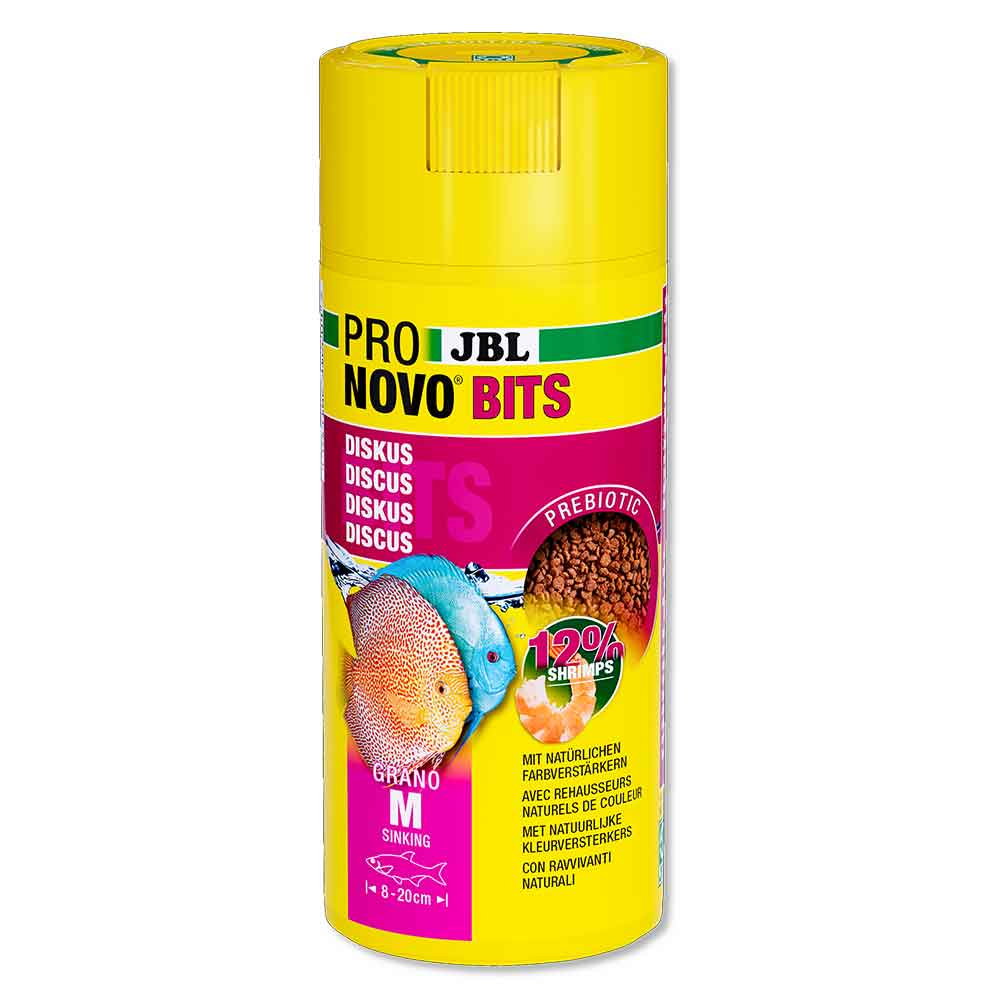
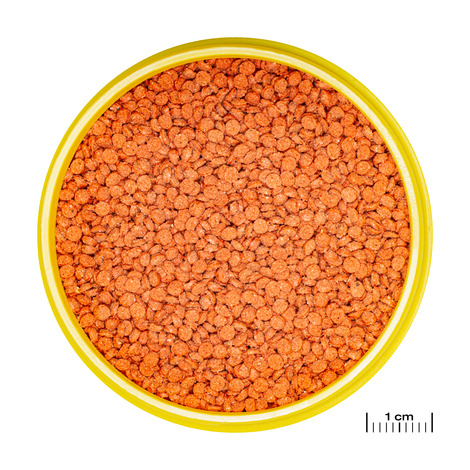
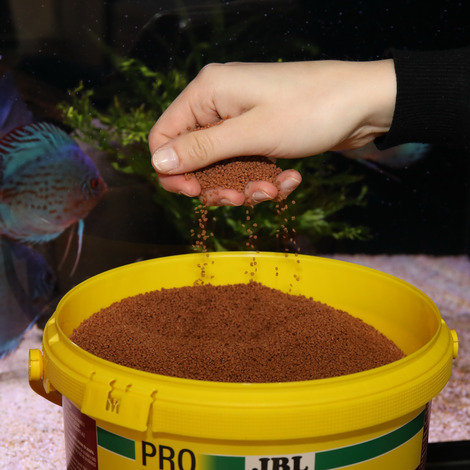
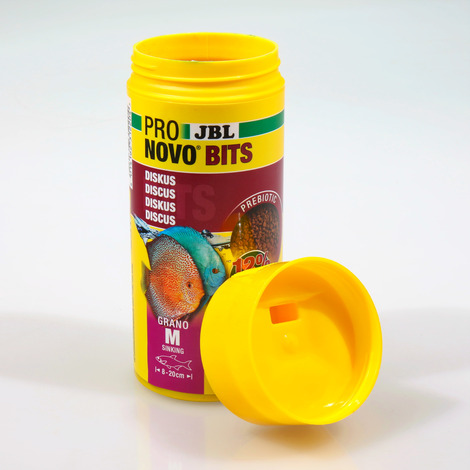
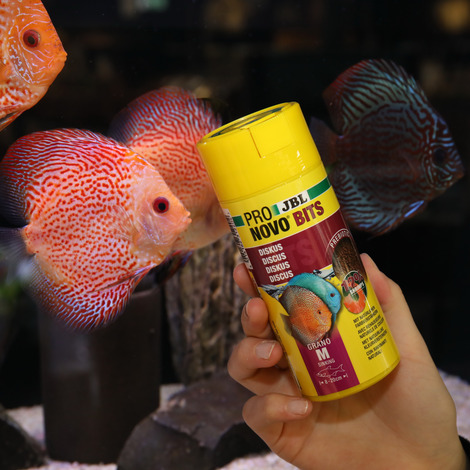

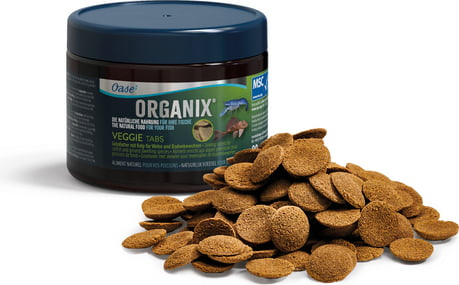
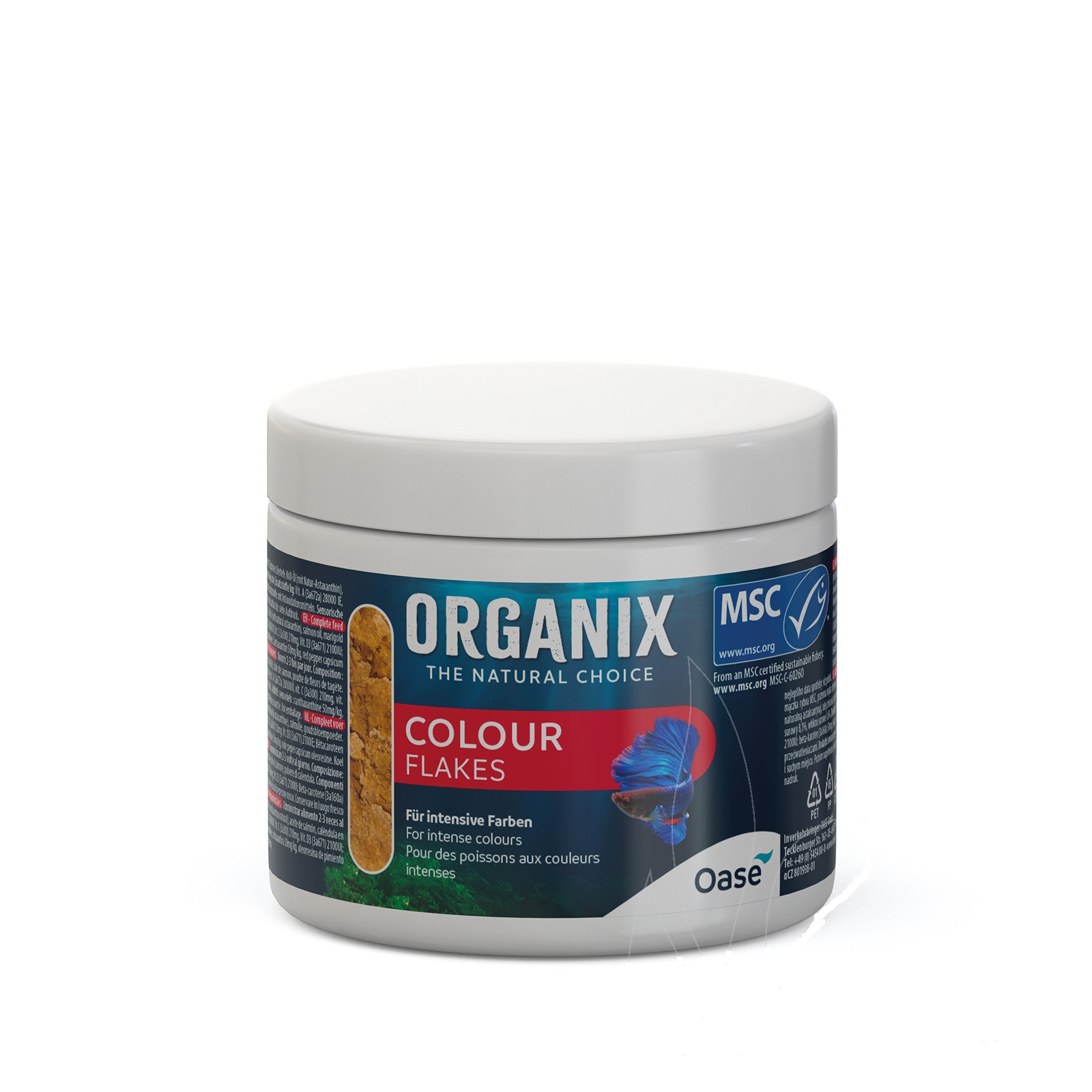
_20220118192110.jpg)
